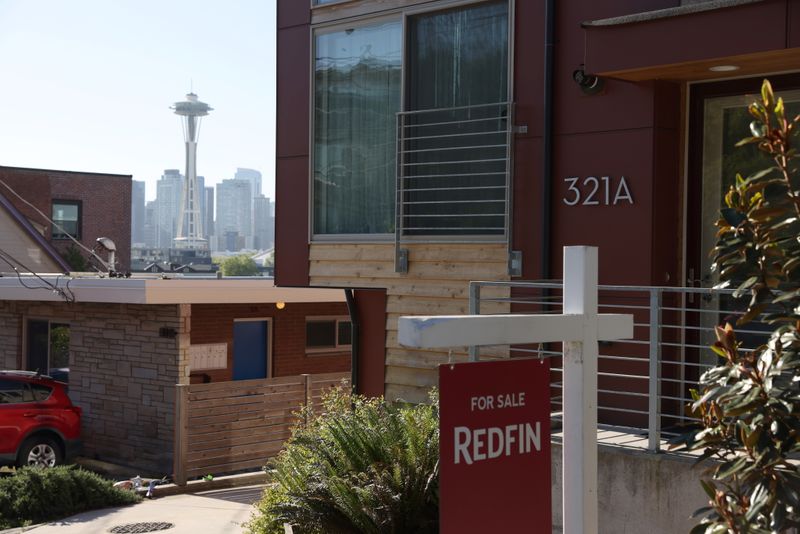(Reuters) -U.S. single-family home prices in 20 key urban markets rose in April from a year earlier by the most in over 15 years as the shortage of homes available to buy drives up prices at the fastest rate seen since before the financial crisis, a closely watched survey said on Tuesday.
The S&P/Case Shiller composite index of 20 metropolitan areas gained 14.9% through the 12 months ended in April, the largest annual price increase since December 2005. A Reuters poll of economists had forecast a 14.5% increase.
On a month-to-month basis, the 20-city composite index rose 1.6% from March. Economists polled by Reuters had been expecting a 1.7% increase.
Among the twenty cities, Phoenix, San Diego, and Seattle reported the highest year-over-year gains in April.
“While the acceleration may be met with concerns, mortgage interest rates remain 50% lower than they were in 2005, when home price growth last peaked, keeping the ratio of mortgage payments to monthly households income lower today,” Selma Hepp, CoreLogic Deputy Chief Economist said. “It’s probably that continued massive demand will keep pressure on prices, which are likely to remain at double-digit growth rate throughout the remainder of 2021.”
Similar data out Tuesday from the U.S. Federal Housing Finance Agency showed its home price index gained a record-high 15.7% through the 12 months ended in April.
Home prices have surged nationwide in large part due to limited supply. Contrary to the run-up to the 2007-2009 financial crisis, the current boom does not feature a frenzy of speculators and buyers with low credit scores buying homes and trying to flip them. Prices are at a record while sales volumes are still roughly 20% below their peak level in mid-2005.
“Despite sharply rising prices, demand for homes remains very strong,” Zillow Economist Matthew Speakman said. “Bidding wars for the relatively few houses available remain common and homes are going under contract at an increasingly fast pace. Inventory upticks in recent weeks suggest that a respite from these red-hot market conditions may be starting to form.”
Last week, the Commerce Department reported that sales of new U.S. single-family homes fell to a one-year low in May as expensive raw materials such as lumber continue to increase prices of newly constructed houses. Also, the National Association of Realtors said sales of previously owned homes fell for a fourth consecutive month in May.
(Reporting by Evan SullyEditing by Chizu Nomiyama)




















